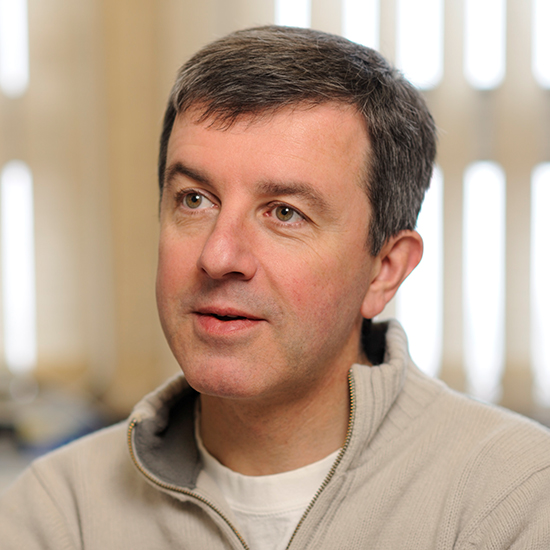John Sutherland’s research concerns the origin of life – how did chemistry initiate biology and to what extent did it shape its basic structure and function? His research to date has focused on establishing prebiotically plausible syntheses of the building blocks of the informational, catalytic and compartment–forming macromolecules crucial to life, and his group is now seeking to establish how these building blocks could have become linked together.
His major contribution has been to show how amino acids, ribonucleotides, lipid precursors and core metabolites are the products of a reaction network based on the reductive homologation of hydrogen cyanide and some of its derivatives. The network does not produce a plethora of other compounds, however, which suggests that biology did not select all of its original building blocks, but was simply presented with a specific set as a consequence of the chemistry of hydrogen cyanide and that set turned out to work.
His research has been recognised by the award of the Darwin Medal, the Tilden Prize of the Royal Society of Chemistry, and by his being appointed an Investigator of the Simons Collaboration on the Origins of Life.
Professional position
- Group Leader, MRC Laboratory of Molecular Biology
Subject groups
-
Chemistry
Chemistry, general, Chemistry, organic, Chemistry, biological
-
Molecules of Life
Biochemistry and molecular biology
-
Other
Public engagement
Awards
-
Darwin Medal
For his novel and convincing work on prebiotic chemistry, in particular his solution to the central problem of nucleoside synthesis.

